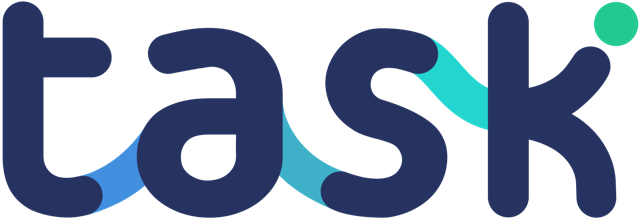There are a number of reasons why Task uses blockchain. This article gives you an insight into how we gain leverage from this emerging technology. Some of our use cases are currently in the roadmap, and so have been marked as “coming soon”.
Long-term impact paper-trails
Task encourages long-term proof of impact. We track any activity, and that means evidence of documents, media, imagery and other data points that are stored in our database (its one of the techniques we use to help Funders gain insight into their support).
A one-way hash technique described here means you can examine data stored by Task at any point in the distant past and recheck the authenticity of the data, thanks to values stored inside the blockchain ledger system. It creates an incorruptible trail of impact that cannot be manipulated at a later date. Any changes in the data stored in our databases are automatically flagged.
Public data trail scrutiny
One of the reasons we chose Stellar as our blockchain partner is due to its public accessibility. Transactions are open for all to see. That means that if an organisation is serious about proving ongoing impact, they can publicise the blockchain ledger storing their activity.
Worthless tokens Vs “real value” tokens
Task supports ALL tokens based on Stellar. These tokens are used to pay Taskers for completing tasks, providing incentives for tracking activity. There are three classes of tokens:
“Worthless” tokens
A custom token setup for your project or brand. It is not “tradable”, it has no real value. However, it allows you to provide rewards to your team, and you can setup “redeem” options that mean holders of your tokens can swap them for the rewards that you or your partners define.
Pegged tokens
There are a number of Stellar tokens such as Stronghold USD supported by IBM, as well as FCA regulated providers such as WIREX who have released 26 fiat-backed “stablecoins”. That means Task users can get paid in tokens with market values which opens up use cases for Task which we’ll look at below.
Traded tokens
Finally there are tokens such as Stellar Lumens (XLM) which can be traded on exchanges, where prices fluctuate with the market. Typically a more unusual use case for Task, but there is an opportunity for organisations such as Stellar and other owners of traded tokens to increase circulation of their coins through activities tracked via Task.
Defined economic systems
When you own your token, you can define your economy – you implement inflation policy, currency circulation rulesets, and what happens to “used” tokens (recirculate or remove (burn) them from the economy).
One example is Task client Freeland – in which the number of TYGER tokens in circulation is determined by the total protected sq KM of Tiger populations globally.
We believe there will be many emerging micro-economies built on different value systems, and use of a formal blockchain technology allows Task to support these operations fully.
Peer to peer payments (coming soon)
One of the reasons we chose Stellar was that it is very fast and low-cost when completing transactions. Users inside the Task platform can make payments to each other for virtually zero cost, and given Tasks exciting opportunities in emerging economies – allowing users to use payments within their own communities – increases Task’s potential as a financial tool.
The ability for users to send payments to each others also increases “team effects”. Rewards provided in exchange for tokens can be setup so that teams need to work together to earn enough tokens in order to qualify for high-value redeem options.
Voting & tipping systems (coming soon)
A powerful way to enable meritocracy around rewards is through crowd based voting. Tipping via the timeline means external parties such as Funders are able to evaluate the work done, and then provide subjective amounts of funds via tips to reward the completed activities.
Escrow services (coming soon)
Task facilitates the safety and tracking of very large funding and investment with Escrow services. Stellar supports smart contracts, and the release of funds from an account against pre-defined rules and multi-signatory authorisation.
It means that Task is able to automate controlled access to large scale funds. Through Task, users can complete activities to be verified, which in turn allow the release of the next tranche of funding – giving confidence to large scale investors and the people accessing these funds.
Task promotes transparency and accountability. Having solid economic fundamentals underpinning the platform supports this mission. Blockchain technology is one important component that supports our vision.
